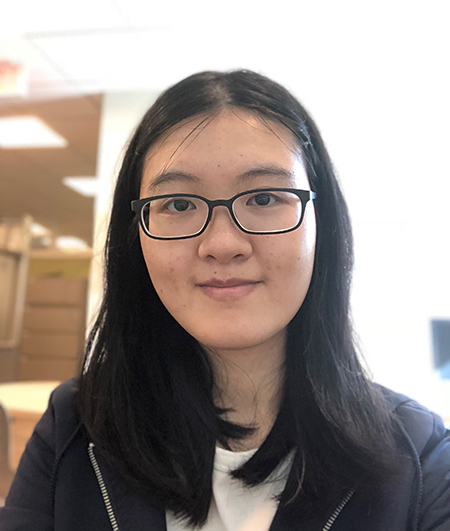
Hometown: Queens, New York
Undergraduate: New York University, BA in Biology, Minor in Public Health
Can you tell me a little about yourself before you came to Drexel?
Before coming to Drexel, I was earning my bachelor's degree in biology with a minor in public health. I applied for the one-year IMS (Intensive Medical Sciences) program at Drexel during my senior year of undergrad and started the program right after graduating from college. Toward the end of my IMS year, I realized I needed some more time to strengthen my med school application, so I transferred to the MMS (Master of Science in Medical Science) program.
Why did you choose Drexel's Master of Science in Medical Science (MMS) program?
By the time I graduated from college, I was sure that I wanted to be a doctor, but I had heard many negative stories about people changing career paths and dropping out of medical school because they couldn't handle the stress. I wanted to know for myself whether I'd be able to handle the workload before I went through the arduous process of applying and entering medical school. I liked Drexel's IMS program because it offered actual medical school classes and a strong team of advisors who could help me navigate the medical school application process. Drexel also has many different graduate programs, electives and research labs, and is located in the city, so there are many opportunities. As an added bonus, Philadelphia has a rich history to explore.
How is the program going so far?
I am currently in my second year of the MMS program, although I was initially in the IMS program. Switching from IMS to the second year of MMS was one major event that I had not expected, but I'm glad I did it. With IMS, classes were intense, so I didn't get to do as much community service and shadowing as I would have liked; I basically lived in the library 24/7. With an extra year as a second-year MMS student, I can strengthen my med school application by taking classes, conducting my own research project, volunteering at a health clinic, shadowing a doctor and TAing a class. As I expected, I learned how to study and manage my stress despite the heavy course load. However, I didn't foresee the deep friendships that I would make here. I am so grateful for my friends, because they've taught me so much and were there for me when times were tough.
Please explain the research project you're working on.
My research project involves characterizing joint engagement states in children with autism spectrum disorder (ASD) and looking for potential relationships between these states, ASD severity and expressive language outcomes. Joint engagement is the triadic relationship between a child, adult and shared object; by playing and commenting on the same object that the child is playing with, the adult facilitates language development in infants. Being able to sustain joint engagement interactions with adults requires children to maintain eye contact and pay attention, among other abilities. Children with ASD, however, have difficulty with social communication, making it hard for them to initiate and sustain these interactions; thus, children with ASD usually have language delays. My project seeks to analyze whether there are any relationships between different joint engagement states, ASD severity and expressive language outcomes. Knowing this can help improve current ASD early intervention methods.
What advice do you have for people who are considering attending Drexel's Master of Science in Medical Science program?
The IMS and MMS programs are both really tough, but it's important to keep your eye on the prize and to not give up. Don't be afraid to try to change your studying habits, especially if they aren't working. Don't be afraid to ask for help as well! I quickly found that most of my studying habits from undergrad weren't as effective as I needed them to be. Most of my current ones were formed from asking others for advice on how to study and experimenting on myself until I found the ones that work for me. Also, there will be days where you don't feel like studying, so take a break to prioritize your health and mental well-being. Spending time with friends can help, whether it's through studying in a group or going on a walk together.
How do you like living in Philadelphia?
I'm really excited about volunteering! Volunteering at a health clinic reaffirms my love for service and strengthens my resolve to become a doctor. Besides that, I also enjoy exploring Philly's historical sites and experiencing its culture.
Anything else you'd like to share?
Even though IMS and MMS are both difficult, there are many resources available to help you. Besides your teachers, TAs and peers, you also have a wonderful team of advisors who can help make your dream of becoming a physician a reality.